
THE VOICE OF INTERNATIONAL LITHUANIA
|
VilNews has its own Google archive! Type a word in the above search box to find any article.
You can also follow us on Facebook. We have two different pages. Click to open and join.
|
News
- Posted by - (5) Comment
By Dr. Boris Vytautas Bakunas,
Ph. D., Chicago
A wave of unity sweeps the international Lithuanian community on March 11th every year as Lithuanians celebrated the anniversary of the Lithuanian Parliament’s declaration of independence from the Soviet Union in 1990. However, the sense of national unity engendered by the celebration could be short-lived.
Human beings have a strong tendency to overgeneralize and succumb to stereotypical us-them distinctions that can shatter even the strongest bonds. We need only search the internet to find examples of divisive thinking at work:
• ”50 years of Soviet rule has ruined an entire generation of Lithuanian.”
• ”Those who fled Lithuania during World II were cowards -- and now they come back, flaunt their wealth, and tell us ‘true Lithuanians’ how to live.”
• ”Lithuanians who work abroad have abandoned their homeland and should be deprived of their Lithuanian citizenship.”
Could such stereotypical, emotionally-charged accusations be one of the main reasons why relations between Lithuania’s diaspora groups and their countrymen back home have become strained?
As psychiatrist Dr, Aaron T. Beck and others have noted, accusatory remarks are often perceived as threats by those targeted for verbal attack. Recriminations follow and escalate into verbal shooting matches that solidify hostilities between individuals and groups that previously enjoyed friendly relations.
Although debate is an inevitable and even desirable characteristic of free democratic societies, inflammatory finger-pointing can undermine a country’s national cohesion, political stability, and economic development. As individuals, what can we do to curb the spiral of anger-promoting speech that has surfaced within the world-wide Lithuanian community?
Learn and Teach Tolerance
Anger short-circuits our rational faculties, undermines problem-solving, alienates us from our fellow human beings, and puts us at increased risk for high blood pressure, heart disease, and a host of other illnesses. By learning to adopt a tolerant attitude towards what others say or do, we not only help ourselves, but we help others. As Albert Einstein said, "Example isn't another way to teach, it is the only way to teach."
The next time you feel the impulse to respond angrily to inflammatory accusations, remember that those making them are in the throes of anger themselves. Or they are venting their rage by trying to provoke you. In either case, what they say or write does not merit being taken seriously.
We can disengage from inflammatory rhetoric by using our reason to identify the logical fallacies of their statements. To say that Soviet rule has “ruined an entire generation of Lithuanians” is a gross overgeneralization. As Vilnius-born poet Sergey Kanovich, son of the prominent novelist Grigorijus Kanovicius, has pointed out, “Life is not all black and white…Good people were sometimes brought up in Soviet Lithuania and even led Sajudis.” Similarly, to characterize all Lithuanian Americans as wealthy cowards is to stereotype a mass of individual human beings -- most of whom are hard-working and far from rich -- with a highly pejorative label.
Instead of responding to slurs, we can simply ignore them. Eleanor Roosevelt said that “nobody can make you inferior without your permission.” If you do choose to respond, it’s best to state your position objectively, focusing on facts and offering productive solutions.
Judgmental references to Lithuanians, Lithuanian-Americans, or any other group of people are virtually meaningless unless accompanied by qualifying words like some, many, often, or occasionally. In the absence of qualifiers, people tend to interpret group labels in absolute terms that fail to capture the individuality of others. By avoiding overgeneralizations and stereotypes, we can curb our human inclination towards impulsive irrational thinking and set an example for others to follow.
Strengthen Cultural Bonds
Another way we can help reduce divisiveness in the world-wide Lithuanian community is by participating in cultural events and organizations that emphasize what Lithuanians have in common. While political activities often divide people, cultural activities strengthen the bonds that tie them together.
During an interview at the March 11th Lithuanian independence celebration, Agne Vertelkaite, Cultural and Economic Affairs Officer at Consulate General of the Republic of Lithuania in Chicago, said that “Cultural events and activities provide Lithuanians abroad and at home with a particularly effective way to preserve their sense of national identity.” As an example, she cited the Lithuanian youth folk dance group Ugnele from Vilnius which performed in St. Louis on March 9th and in Chicago on March 11th, 2012 under the sponsorship of the Lithuanian government.

Cultural activities have long been one of the mainstays of preserving national identity in the Lithuanian Diaspora. The Viltis Theater troupe established under the leadership of Lithuanian actor Petras Steponavičius, who sadly passed away in 2015, includes members spanning three generations of Lithuanian emigration.
Just as the internet can spread divisiveness and hate, so it can serve as a tool for opening channels of communication and strengthening national cohesion. . E-magazines like VilNews as well as Facebook pages like “We Love Lithuania,” “Our Mom’s Lithuanian Recipes,” and “The National Lithuanian American Hall of Fame” are just a few of the of internet sites where Lithuanian cultural achievements, traditions, and customs are gaining widespread appreciation.
By taking part in Lithuanian cultural activities, we can refuse to submit to the stereotypical thinking that divides us. Instead of forming in-groups and out-groups, we can transcend negligible and temporary differences and help cultivate a sense of national unity and mutual understanding. As internationally-renowned American-Lithuanian film-maker Jonas Mekas has pointed out, a small country like Lithuania cannot allow itself to give away her children.
References:
Beck, A. T. (1999). The cognitive basis of anger, hostility, and violence. New York: Harper Collins.
Dozier, R. W. (2002). Why we hate: Understanding, curbing, and eliminating hate in ourselves and our World. New York: McGraw-Hill.
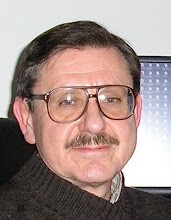 |
BORIS VYTAUTAS BAKUNAS I’m an educational psychologist and independent consultant whose major goal is to share the learning, thinking, and emotional self-help skills that will help people of all ages achieve the things they want out of life – in school, on the job, and in daily life. I’m also a teacher with over 29 years experience at the junior high, high-school, and college levels. Currently I teach graduate professional development courses for educators at St. Xavier University/International Renewal Institute, where my students say I’m “a knowledgeable, down-to-earth instructor with a great sense of humor.” I say, “If you love what you do, a sense of humor comes naturally.” My formal educational background includes Master's degrees in English and Special Education, and a PhD in Educational Psychology from the University of Illinois at Chicago. My research and articles have appeared in Applied Psycholinguistics, Learning, Principal, The Clearinghouse, and Education Digest. I’ve been a full member of the American Psychological Association since 1994. |
THE ABOVE VilNews ARTICLE WAS FIRST TIME PUBLISHED IN 2012
Comments from 2012
A poignant article that touches on the root causes of bias and discrimination. Throughout Lithuanian history, the Lithuanian people showed unity, determination and resiliency to overcome 200 years of foreign occupations that, once again, resulted in a free and sovereign nation. Today, it is only through unity, determination and resiliency by Lithuanians, in Lithuania and abroad, that Lithuania can move forward and reclaim her place on the world stage.
Although, physically, Lithuanians may live oceans apart, pushing each other further away only hinders the progress of the Lithuanian nation. As this article points out, cultural promotion and exchange between all Lithuanians can solidify and preserve our national identity. Organizations, such as, the National Lithuanian Hall of Fame, and the newly established Lithuanian-American Theater "Viltis" seek to promote Lithuanian culture in America, and at the same time, reach out and recognize achievements of Lithuanians in Lithuania.
One only has to look at history to learn that peoples united for a purpose or cause will always achieve their goals.
Why would there be ANY political differences among Lithuanian-Americans, at least for those over age 40 who are fully Lithuanian?? Do actual Lithuanians who lived under communism support any party which proposes to do the same thing to America that Russia did to Lithuania?? HOW can there be political divisiveness among Lithuanians who were old enough to witness the terrors and the gulags?
One of the outstanding features of VilNews is how it publishes articles highlighting the achievements of Lithuanians around the world as well as the harsh realities of the past.
In 2011, two highly-acclaimed novels about the horrors of Soviet oppression were published. "Between Shades of Gray" by Ruta Sepetys told the story of a fifteen-year-old girl who along with her family was exiled to Siberia. Both hard-cover and paperback editions of "Between Shades of Gray" hit the New York Times best-seller list..
Antanas Sileika's novel "Underground" depicts the armed resistance of the Lithuanian partisans against the Soviet invaders and their collaborators. "Underground's" Lukas, is based on Lithuania's most famous partisan, Juozas Luksa--Daumantas. :"Underground" was picked as on of the best novels in English published in 2011 by The Globe and Mail. I have heard that the United States edition of Sileika's novel will be published within a few weeks.
2011 also saw the publication of Ellen Cassedy's book "We Are Here," which recounts the author's personal quest to understand how the people of Lithuania -- Jews and non-Jews -- are dealing with the horrors of the Nazi and Soviet past in order to build a new and better future. Ellen was inspired to write her book when her uncle, a Holocaust survivor, gave her a slip of paper and said, "Read this."
All three books, written by children of Lithuanians who escaped execution or exile, are helping to acquaint English-speaking public with one of the most tragic and heroic periods of Lithuanian history. They will also help educate a new generation of Lithuanians about the long suppressed history of Lithuania during and after World War II.
I am very happy that The National Lithuanian Hall of Fame is playing such an active role in helping to publicize all three books. This new organization has already donated more than five thousand dollars to help Lithuanian film director Tomas Donela secure the film right to "Underground." It is also making great progress in getting "Between Shades of Gray" on the reading lists of American schools and doing all it can to promote "We Are Here."
How can there be any divisiveness among Lithuanians in regards the terrors of the Gulag and the Holocaust? I don't have an answer to that question. I only know that during my own long life I have encountered several. I've spoken to and interviewed Lithuanians who collaborated with Nazis and with Soviet Communists. I've heard expressions of anti-Semitism, and I've heard several Lithuanians express nostalgia for the "good old days" under Communism. Probably, I'll never fully understand the dark side of human nature. But I also spoke to former partisans, political prisoners, and those who endured Siberian exile. My hope is that as individuals we do all we can to overcome hatred in word and in deed and help each other when we can.
In this endeavor, perhaps we can learn from the example set by South Africa's Truth and Reconciliation Commission. As Archbishop Desmond Tutu has said, "“Forgiving is not forgetting; its actually remembering--remembering and not using your right to hit back. Its a second chance for a new beginning. And the remembering part is particularly important. Especially if you dont want to repeat what happened.”
Boris Vytautas Bakunas
![]()
Afriani· 187 weeks ago
I would be torn too. I'm 2nd generation Lithuanian, went to Lithuanian shocol (and hated it at the time), Lithuanian scout camp and Neringa until I was 13 and my first visit to Lietuva was at 13. I was actually in Lietuva the summer when 7 border guards were killed and visited the graves of the fallen. The whole trip was an intense experience that I don't think I would have appreciated had I been younger. I say, save up for Letuva for when your kids can really understand the importance of the trip, and go for Disney. I went there for the first time when I was about 7 or 8 and there is definately a magic about it at that age (but I think that magic is there at any age).
- Bookmark :
- Digg
- del.icio.us
- Stumbleupon
- Redit it
- Posted by - (1) Comment
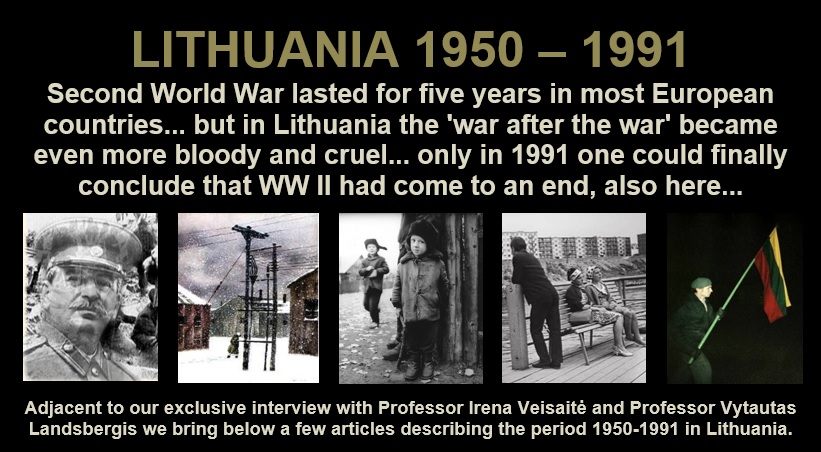
 |
THE WEST IGNORED ALL SOVIET ABUSES! |
 |
CHRISTMAS IN SIBERIA
A Lithuanian family at Lena river “The tents were freezing cold, harsh, and distressing; so, the adults decided to build better living conditions. "We can build barracks," said one Lithuanian, "We can catch the logs in the Lena River." The men waded barefoot into the icy water, caught floating logs, brought them to shore, and built the barracks. They covered the outside walls with snow and ice which they learned would help keep out the frigid temperature. They also found a large iron stove, which they placed in the middle of the building. https://vilnews.com/2011-01-christmas-in-siberia |
 |
DEPORTEES RETURNING FROM SIBERIA
It must have been quite a shock for the surviving deportees to return ‘home’ from Siberia to Lithuania in the 1950s and 1960s. The country they had loved and cared so much about was now ruled and mismanaged by Moscow-believing Communists. Since 1941 more than 300.000 persons had been deported to Siberia, with tens of thousands dying en route to or on the permafrost. The 1950s was the decade when Lithuania's 10-year guerrilla war against the superior Soviet forces came to an end, with the result that 22.000 Lithuanian forest brothers and about 70.000 Soviet soldiers had lost their lives, thus the longest and bloodiest guerrilla war of modern Europe. https://vilnews.com/2012-04-deportees-returning-%E2%80%98home%E2%80%99-from-siberia |
 |
LITHUANIA IN THE 1960s PHOTO: View from Antakalnis towards the (by then) new district Žirmūnai. By: Antanas Sutkus, 1964 |
 |
FINALLY … |
- Bookmark :
- Digg
- del.icio.us
- Stumbleupon
- Redit it
- Posted by - (0) Comment

Greetings from Wales!
By Anita Šovaitė-Woronycz
Chepstow, Wales
Think of a nation in northern Europe whose population is around the 3 million mark
- a land of song, of rivers, lakes, forests, rolling green hills, beautiful coastline
- a land where mushrooms grow ready for the picking,
- a land with a passion for preserving its ancient language and culture.
Doesn't that sound suspiciously like Lithuania? Ah, but I didn't mention the mountains of Snowdonia, which would give the game away.
I'm talking about Wales, that part of the UK which Lithuanians used to call "Valija", but later named "Velsas" (why?). Wales, the nation which has welcomed two Lithuanian heads of state to its shores - firstly Professor Vytautas Landsbergis, who has paid several visits and, more recently, President Dalia Grybauskaitė who attended the 2014 NATO summit which was held in Newport, South Wales.
We know very little about Lithuanian inhabitants of Wales prior to World War II. There must have been some, but documentation is difficult to find. Our guess is that a number may have arrived as workers via the DP camps of Germany after the war, and we know that others moved here after spending a period of time elsewhere in the UK. My own parental grandparents left Stoke-on-Trent in the 1950s to run a farm in Carmarthenshire where they also hosted Lithuanian scouting courses in its grounds. Decades later, work opportunities brought other members of the family, myself included, to settle in South East Wales. On the other hand, Rhyl in North Wales, became a popular retirement place for Lithuanians from the Stoke area who had enjoyed holidays at the seaside town.
Time passed. Lithuania declared independence from the USSR. Let’s fast forward to the bloody events in Vilnius of January 12th - 13th 1991. In direct response, a meeting was called in Cardiff to discuss how to help raise awareness in both in Wales and throughout the UK. This is how Cardiff Baltic Society (later Wales Baltic Society) was born. It brought together members of the exiled Lithuanian, Latvian and Estonian communities in Wales and a handful of Welsh people (later to include politicians) plus other interested parties.
In July 1991, one of the founder members of Cardiff Baltic Society, the now late Anthony Packer, then lecturer in Education at the University of Wales, Cardiff, led a delegation of educationists to Vilnius to advise on the reconstruction of the Lithuanian school curriculum. During this visit, he went privately to the headquarters of Sajūdis to deliver a message of support from the General Secretary of the Welsh political party, Plaid Cymru (the Party of Wales). This was the first ever such message to come from any British party. A special friendship between Wales and Lithuania was thus forged and continues to this day.
Fast forwarding another few months we find that the Soviet Union has fallen, that Lithuania has been recognised internationally as a country in its own right and Wales-Lithuania links have continued to grow. In no particular order, here are some examples of those links:
● A rowan tree grows in the Welsh National Garden of Peace in Cardiff. The tree was ceremoniously planted by Lithuanian MP (now MEP) Laima Andrikienė. Members of the Baltic Society were in attendance along with Paul Flynn, MP for Newport West and a representative from Plaid Cymru.
● An official friendship agreement has been established between the Vale of Glamorgan in South Wales and the city of Jurbarkas in Lithuania.
● The then Cwmbran-based Eimutis Šova was appointed Ambassador of Goodwill from the City of Kaunas to the City of Cardiff.
● Professor Vytautas Landsbergis has visited Wales on several occasions and it was put to him that his autobiography, "Lūžis prie Baltijos" could be adapted for an English-speaking audience. Eimutis Šova, by now Chairman of the Baltic Society and the Lithuanian Association in Great Britain, was able to translate the whole script from his Cwmbran home, whilst editor Anthony Packer worked from his place in Penarth. The result was a book entitled "Lithuania Independent Again", published by the University of Wales Press in Cardiff and launched in the year 2000 at the Welsh Assembly Rooms in the city. I know - I was there with my mother and brother. Sadly, my father Eimutis did not live to see this event, a celebration of the completion of a project in which he played a major part.
● In 1994, The "Versmė" Choir of former deportees and political prisoners from the city of Jurbarkas travelled all the way to Wales by coach. They toured the country, stopping at various towns to give joint concerts alongside their counterpart Welsh choirs. They were hosted by local residents in each town as they went along. Welsh representatives from each leg of the journey would join the tour bus for a while, but Eimutis Šova and his wife Rūta went the whole distance to navigate and act as translators. One of the highlights was a visit to the famous International "Eisteddfod" (festival of music, literature and performance) at Llangollen. The tour also took in the village of Aylesham in Kent, due to its links to Wales through mining, including a Male Voice Choir, and its proximity to Dover. Recently, the Versmė" Choir celebrated its 20th anniversary and a book called "Dainuojanti Versmė" has been published to mark the occasion. The trip to Wales is well documented in the book.
● In 2002 Anthony Packer became the Honorary Consul of Lithuania in Wales. Just before his death from cancer in January 2014, he was presented with the Order of the Diplomatic Star by the Lithuanian Ambassador to the UK, Asta Skaisgirytė-Laukšienė. This award is the highest for services to diplomacy given by the Lithuanian government. The ceremony took place at the Cardiff and Vale Marie Curie Hospice, where Anthony spent his final days.
● Many Lithuanians have come to live and work in Wales since Lithuania became a member of the European Union. The 2011 census recorded 1,353 Lithuanian-born residents in Wales, although that number will have changed since then because, as EU citizens, they are entitled to come and go pretty much as they please. These Lithuanians have an agenda separate from that of the Wales Baltic Society and more information can be found on their Facebook page, "Lietuviai Velse".
● The Wales Baltic Society has seen many of its members pass away over the years, but has also welcomed new members from across the Baltics. The Society continues to hold regular events, both social and informative, including an annual lecture in memory of the late Jill Hutt who was the first to call for a society to be formed in Cardiff, having learned about the horrific events in Vilnius through a Lithuanian friend. Have a look at our Facebook page - you'll be most welcome.
Diolch yn fawr! Thank you very much! Ačiū labai!
Anita Šovaitė-Woronycz
Chepstow, Wales, November 2015
Facebook Links to Groups and Events in the Greetings From Wales article:
https://www.facebook.com/Wales-Baltic-Society-137441349626105/?fref=ts&__mref=message_bubble
https://www.facebook.com/Lietuviai-Velse-159315472134/?pnref=lhc&__mref=message_bubble
http://www.walesonline.co.uk/news/local-news/man-penarth-received-knighthood---6484265

The Versmė Choir of deportees and political prisoners from Jurbarkas.
Seated are some of the tour organisers and choir mistress.

The Versmė Choir on the tour bus with Rūta Šovienė (in blue)

The Versmė Choir at the International Eisteddfod in Llangollen.

|
Commemorative postcard - Lithuania joins the EU – can you spot the flag on the Welsh dragon? |

|
Lithuanian and Welsh choir mistresses shake hands with a little help from Eimutis. |
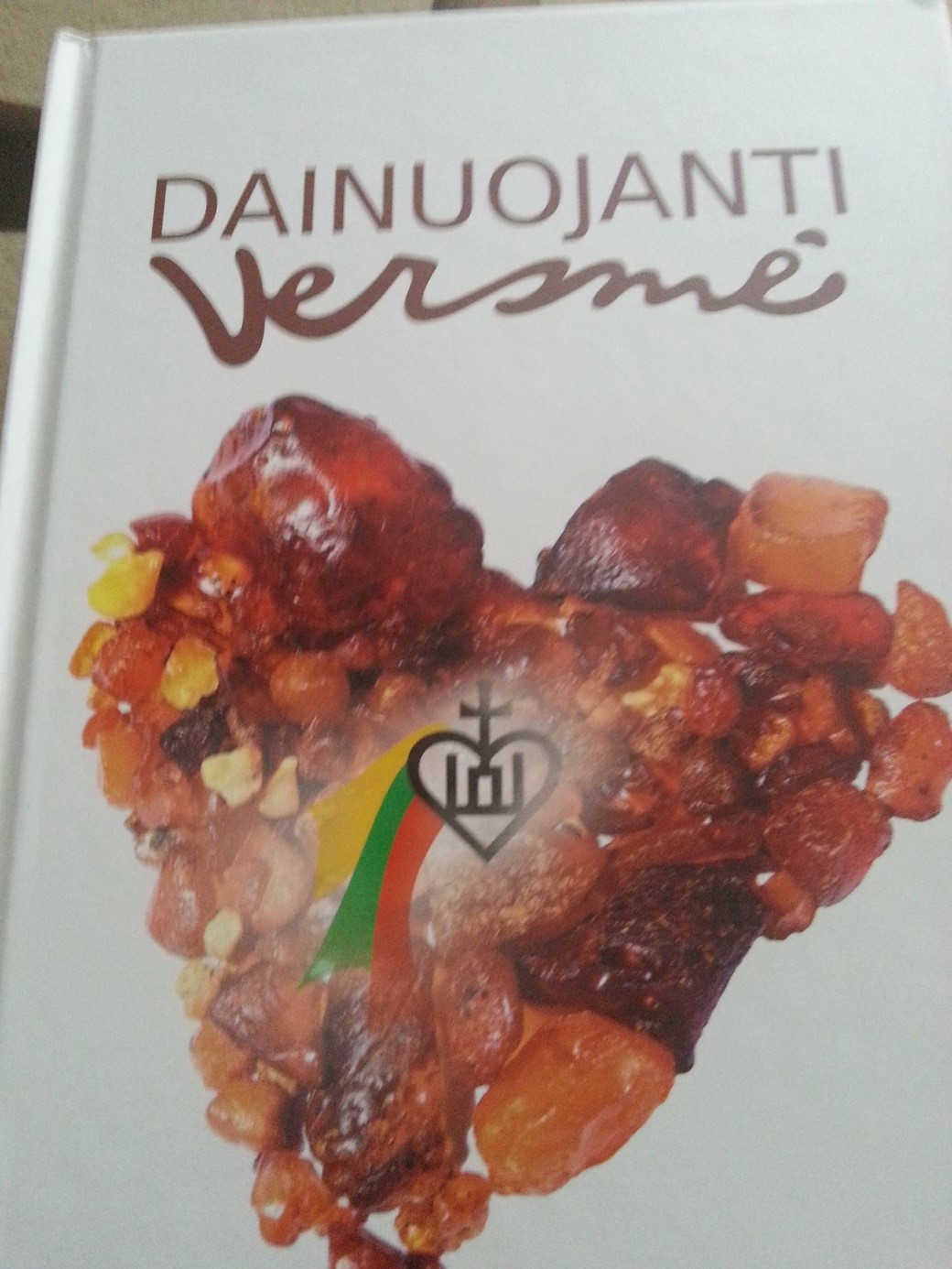
Versmė Choir 20th anniversary book – documents the Welsh trip.
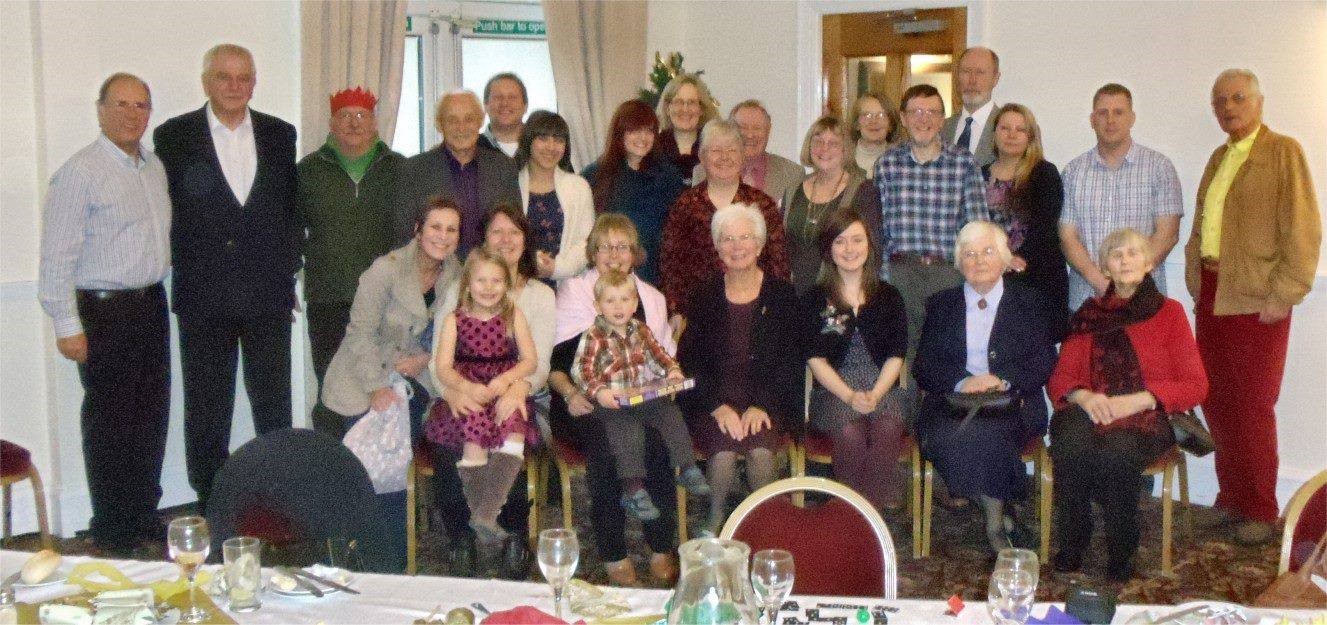
|
Wales Baltic Society Christmas Party. |
|
|
|
|
- Bookmark :
- Digg
- del.icio.us
- Stumbleupon
- Redit it
- Posted by - (9) Comment
My worldviews broadened up and now I was not fitting any longer into the Lithuanian realm. It made me feel lost and confused…

By Rugilė Šablinskaitė
Brussels - Belgium
For many years I have been questioning where my home is. It is quite tricky to define home in this globalized, rapidly moving world where people are so used to traveling and changing their locations within the matter of hours. However, home is this important place where we find security, inner peace and get out of our turtle’s armor. We all unconsciously constantly seek to have home where we could come back after exhausting day at work and feel naked to the deepest corners of our soul. Just be. Ourselves. And say.. I am at home.
I left Lithuania when I turned 18. Inspired by my mother’s stories of her youth years in a new city with new people, I also wanted to experience this time of “golden student years” – shots of her stories were constantly running through my mind, sounding like the best fairytales for kids that inspire one for life full of unknown and exciting discoveries. Being from Vilnius (the dearest city to my heart till this very day), the only option I saw for myself was moving outside of Lithuania (who would change Vilnius for any other city in Lithuania? – I already felt I lived in the heart of it). So, my chosen destination was the UK. There, for the first time in my life I felt homesick. For the first time I realized the weight and the value of the word Motherland (or Fartherland, if you prefer). I learnt about the significant cultural differences, systems of values, traditions, etc. And I started missing something ‘mine’ (and as the great thinker B.Anderson puts it, I fell into the trap of imagined community as nation “is imagined because the members of even the smallest nation will never know most of their fellow-members, meet them, or even hear of them, yet in the minds of each lives the image of their communion”...). When Skyping with my mother, she first started calling my changing feelings and worldviews nationalistic till it turn into a bit of chauvinistic ones. I impatiently waited for my holidays in Lithuania to come, to unite again with ‘likeminded’ (the idea that was planted and already deeply rooted in my soul by the time passing by) people, my fellow countrymen... However. When I got back to Lithuania, unfortunately, no miracle happened. After spending time in the UK, silently my worldviews broadened up and now I was not fitting any longer into the Lithuanian frameworks. It made me feel lost and confused. This confusion resulted in Bachelors dissertation on the role of national identity in a foreign country. And the research results showed that people feel differently about it. For some it’s more important, for some less, while some are completely unaware of it... And so I continued on searching for my place under the sun.
While living for a year in Mexico, I got to learn how deeply I am able to embrace another distant culture. I fell unconditionally in love with it. And it became a big part of me and my life. The experiences there enriched me, taught me to be open, giving, touchy and enthusiastic about the smallest things in the world. I was fascinated by the simplicity of the people - coming from a privileged environment, I felt most warmly welcomed despite my background or situation. Every time I meet a Mexican nowadays, I feel enthusiastic and it feels like meeting a part of me. I remember my Christmas Eve there... The first time I was not able to be with my family, the first time I saw no sparkling snowflakes falling down around me. Silently apart from all that mattered to me and was so dear to the heart. And I was simply not able to tell aloud anyone about the way I felt. So I figured out, I will just stay home alone, making jams from local fruits and fulfill my time writing letters to beloved ones. Then my Mexican Friend appeared on the doorway. Unexpectedly. She said she came to pick me up and I was going to eat dinner with her family with no excuses. As for me Christmas Eve has always been about this magic unspoken peace you find around once per year and family, I found it hard at that moment. But then we came to her place that was so... First thing I noticed and I could not deny it was Love. When you can actually feel love in the air and you feel touched by it in every possible way. Her family was amazing. It brought tears to my eyes when I saw how they live... The conditions were really tough. Nothing compared to the place I was renting. I felt guilty... People who had so little were willing to share with me every single piece they had (and who were I to them?...). And they were so happy. Curious about me. Giving. When simple is beautiful (and here I find the word ‘beautiful’ just grey because you simply cannot imprison that feeling I got into any possible word created on this planet..). When a hand holding you strongly, makes you feel like home. And I was home.
Different countries, different cities, different people. After years spent in the UK, life in Sweden and Germany was a completely different experience. I stopped focusing on the differences between the cultures, constant search for my place and identity but rather I started fully enjoying the time with people that I could share quality time with not leaving gaps open for the doubts. And despite various differences I could see daily, I absolutely enjoyed living in different environments. Daily discoveries that make Life fascinating and exciting. When we can learn from each other rather than judge and compare. Give than wait to be given. Smile rather than turn the eyes away. Love and embrace.
Very important thing I learnt when travelling. Home is an idea. Home is a feeling. We can live in broken shapes anywhere. But these are our friends and family that create the feeling of home. Flats, houses, same as money, come and go. We can change them even though we get psychologically attached to physical locations. But these are only locations... I feel home under the apple tree in my village, by the river where you have the beautiful view of Lithuanian forests same as I feel home in Brussels running in the park through the autumn leaves.. I have parts of me all over the world – people who are dear and precious to me, with whom I feel home. And while now I live in Brussels, I feel home here – I tamed this place and I have people to whom I want to hold on, people who touched my heart in the most fragile and precious ways. People who are the gifts of Life no money could ever buy. It is one of the many homes I have. I am in love with the city, with its people, with what I do. My nationality is and always will be Lithuanian but today I consider myself a world citizen. And I have come only to one conclusion that... Home is where our heart is.



Home is where our heart is J
- Bookmark :
- Digg
- del.icio.us
- Stumbleupon
- Redit it
- Posted by - (12) Comment
Greetings from Toronto
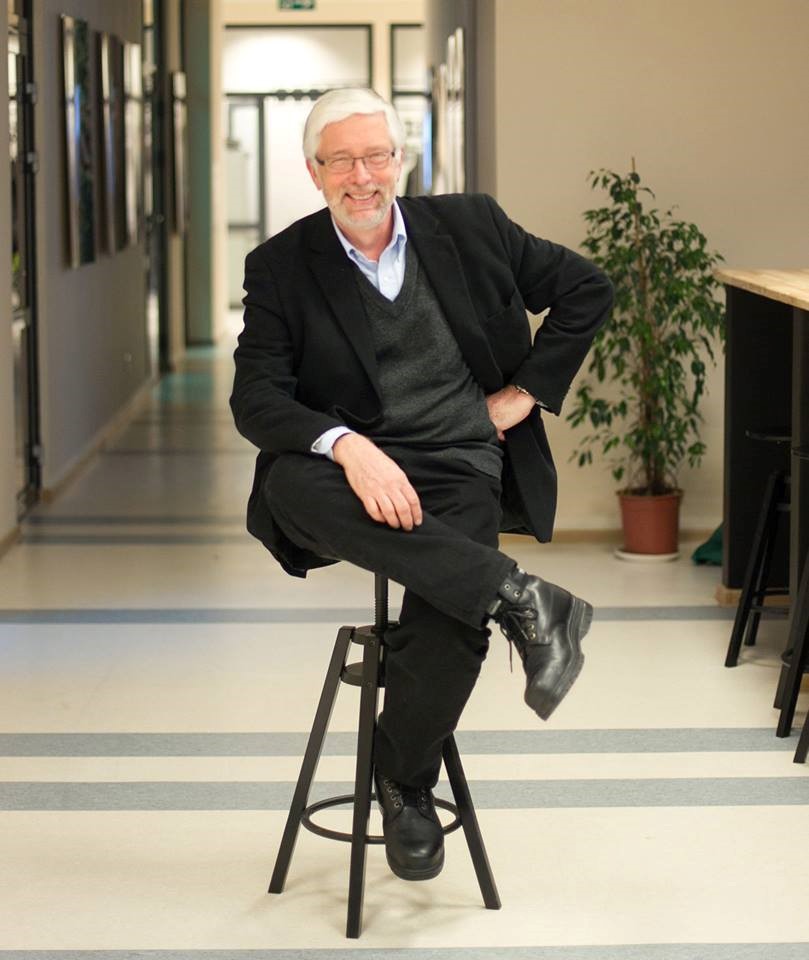
By Antanas Sileika,
Toronto, Canada
Toronto was a major postwar settlement centre for Lithuanian Displaced Persons, and to this day there are two Catholic parishes and one Lutheran one, as well as a Lithuanian House, retirement home, and nursing home. A new wave of immigrants has showed interest in sports.
Although Lithuanian activities have thinned over the decades as that postwar generation died out, the Lithuanian Martyrs’ parish hall is crowded with many, many hundreds of visitors who come to the Lithuanian cemetery for All Souls’ Day. Similarly, the Franciscan parish has standing room only for Christmas Eve mass.
Although I am firmly embedded in the literary culture of Canada, my themes are usually Lithuanian, and I’ll be in Kaunas and Vilnius in mid-November 2015 to give talks about the Lithuanian translations of my novels and short stories, which I write in English.
If you have the Lithuanian language, come by to one of the talks listed in the links below. And if you don’t, you can read more about my work at www.anatanassileika.com
http://www.vdu.lt/lt/rasytojas-antanas-sileika-pristatys-savo-kuryba/
https://leu.lt/lt/lf/lf_naujienos/kvieciame-i-rasytojo-59hc.html
- Bookmark :
- Digg
- del.icio.us
- Stumbleupon
- Redit it
- Posted by - (0) Comment
Greetings from Texas!
 When one thinks of Texas, the least expected thing that would come to mind is that there are actually Lithuanians in Texas! It turns out that some of the earliest settlers from Lithuania came to Texas with their Prussian neighbors and established themselves here. Most thought they were German, probably because Texas was highly populated by Germans. Recently, within the past 25 years or so, it has been established that there were Lithuanians among the German population.
When one thinks of Texas, the least expected thing that would come to mind is that there are actually Lithuanians in Texas! It turns out that some of the earliest settlers from Lithuania came to Texas with their Prussian neighbors and established themselves here. Most thought they were German, probably because Texas was highly populated by Germans. Recently, within the past 25 years or so, it has been established that there were Lithuanians among the German population.
Here is a link to a video about them: https://www.youtube.com/watch?v=66Y0CJqkGKk
There is also a historical marker about the first Lithuanians in Texas:
http://www.stxmaps.com/go/texas-historical-marker-lithuanians-in-texas.html
There are also two large, active groups of Lithuanians, on in Houston,
By Bernard Terway,
Texas, USA
- Bookmark :
- Digg
- del.icio.us
- Stumbleupon
- Redit it
- Posted by - (0) Comment
Greetings from Venezuela!
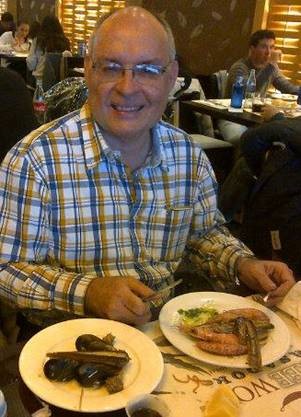
By Vytenis
Architect, Caracas, Venezuela
With great joy and
I am constantly sharing the articles with the Lithuanian Community of Venezuela, from where I'm writing and from where I send Aage and his team my best wishes and success in this new release of VilNews.
Our community is very small, unfortunately, and it has been greatly reduced over the latest years, but we refuse to disappear and have therefore been maintaining the traditions and customs that our grandparents and parents taught us through all the activities organized by our Community.
These are some of our activities:
Commemoration of the Independence celebration of Easter, Christmas, Boy Scout groups, theater, basketball teams, folk dance groups, exchanges with other communities, language training, etc.
VilNews has helped us with Lithuania related articles, to continue to feel proud of having Lithuanian blood in our veins, and keep teaching our youth of its magnificent history, of its people around the world and the mark that it has left in all of us Lithuanians scattered around the world.
Greetings to all Lithuanians around the world:
From
In whatever collaboration you need from us, the Lithuanian Community of Venezuela, within its limits, will always be happy and eager to help and support you ... lots of
Kindest regards, wishing you the best!
Vytenis
- Bookmark :
- Digg
- del.icio.us
- Stumbleupon
- Redit it
- Posted by - (4) Comment
Have Lithuanian ties across the
Baltic Sea become
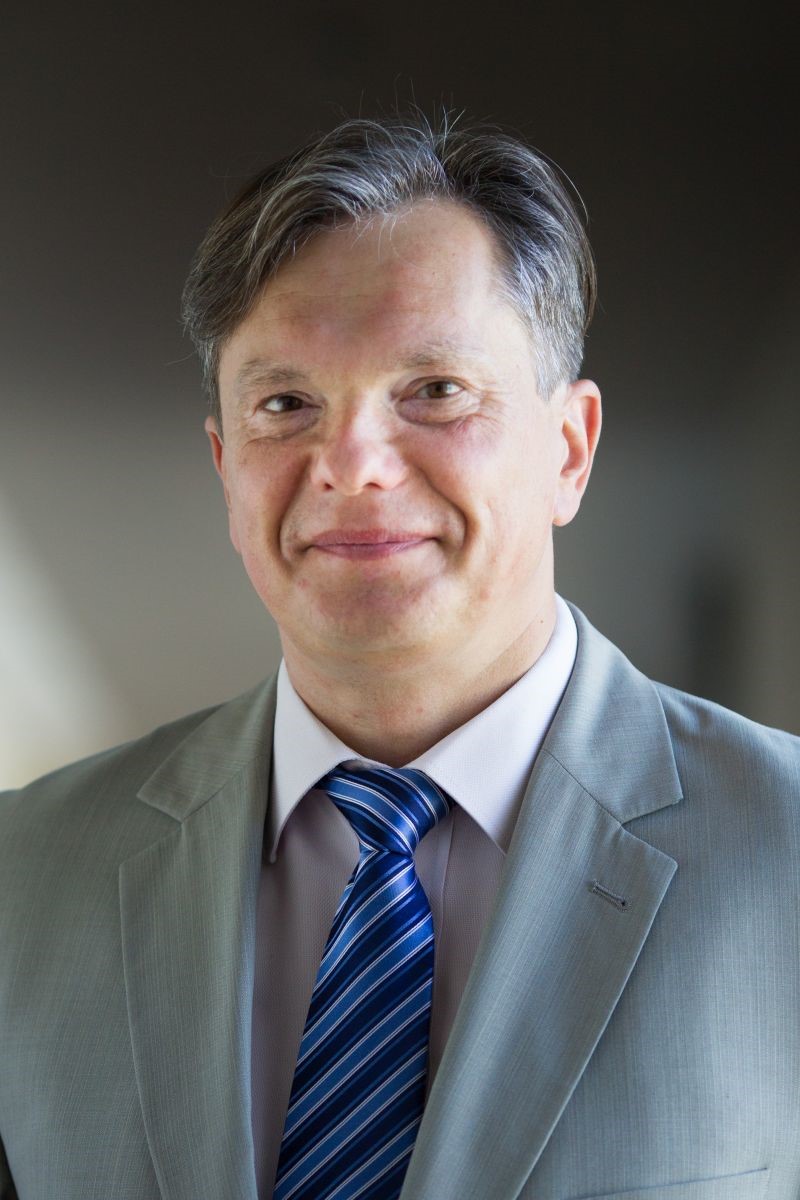
By Eitvydas Bajarūnas
Lithuanian Ambassador to Sweden
My
The two decades that have passed since regaining Lithuania‘s independence can be described as a “building boom”. From the wreckage of a captive Soviet republic, a generation of Lithuanians have built a modern European
Since the restoration of Lithuania’s independence 25 years ago, we have continuously felt a strong support from Nordic countries.
Lithuania took advantage of it very successfully because we soon realized that the assistance and support of the Nordic Countries could help us to play more a significant role in the European and transatlantic space as well as help us solve problems that were urgent for us and the entire region. Nordics, especially – Sweden, became the largest investors in Lithuania, not to mention their financial support for our states’ civil societies,
Several public opinion polls pointed out that Lithuanians believe Lithuania should be associated with the region of Northern Europe, and not with Eastern Europe. Northern orientation dominated in the cases of Estonia and Latvia as well. Orientation towards the North was even proposed by a foreign company that consulted the Government of Lithuania some years ago on image creation issues: in terms of economy Lithuania had rather be associated with the stable, advanced, socially responsible Nordic Countries than the post-soviet space.
Indeed, Lithuania benefits being part of the wider Nordic-Baltic region. Over the last several decades, the Nordic-Baltic region has most probably undergone the greatest transformation. Lithuania developed into a country, associated with economic and fiscal stability, high-level political integration, advanced technologies and high living standards. Extensive and broad cooperation between the countries in the region played a crucial role. The idea that the countries of the region are competitive and economically stable has also been proved by the fact that Nordic Countries have been only slightly affected by the economic and financial crisis that began in 2008, and
The Nordic Baltic Eight (NB8, for short) – consisting of Denmark, Estonia, Iceland, Finland, Latvia, Lithuania, Norway and Sweden – has become a political institution that mirrors the emerging trans-Baltic regional identity. Under the NB8 umbrella, meetings on the ministerial level are now held on a regular basis. Within the European Union context,
Therefore we can talk with a confidence of a “Nordic-Baltic” community, or as the pre-war Lithuanian scientist Kazys Pakštas named it, the “Baltic-Scandic” community. One could only
Recently Lithuania was hosting State visit of Swedish Royal couple. It was symbolic that the main theme of Their Majesties’ visit to Lithuania was “The Baltic Sea unites us”. The sea which used to separate Nordic and Baltic people is now uniting us through numerous political, energy, cultural, research, business, and people-to-people ties. Indeed, we Nordics and Baltics are bound by common values, traditions and culture. The Midsummer celebration – known as Joninės in Lithuania – is the best proof of this. It has become a much-awaited community event in Lithuania, just like in other Nordic and Baltic states, highlighting the strong links between our nations.
But we not only remembering our
True, the Baltic States still have to emulate Nordic countries, which amaze the world by being at the very top of the “Human Development” index and have not been surpassed in terms of living standard. Nordic Countries are one of the most successful regions of the world when estimating not only the quality of living but also the social environment and work culture. Nordic Countries are also leading countries in the field of innovation, high
While much remains to be accomplished, the remarkable achievements of the past twenty years are a testament that Nordic-Baltic region moving to the right direction. Wish us good luck.

- Bookmark :
- Digg
- del.icio.us
- Stumbleupon
- Redit it
- Posted by - (3) Comment
Hi, I am 18, I left
Lithuania two years ago
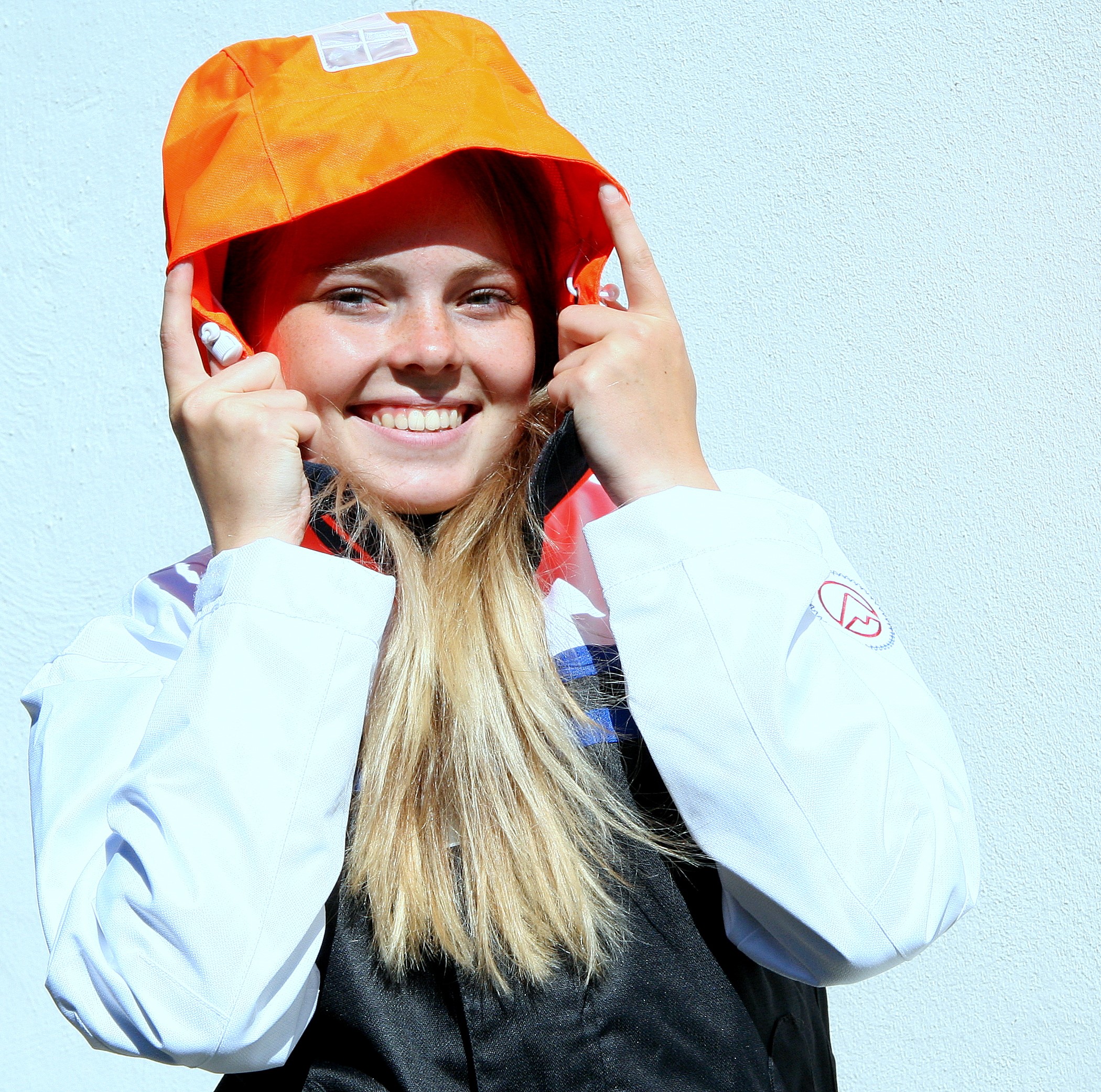
By Cassandra Myhre,
Tromsø, Norway
August 2013 was a time full of changes. It was the beginning of a new chapter in my life. I did not know what to expect or look forward to. The only thing I was certain of was the pain and the complete and utter disappointment I felt when I left my friends and everything behind in Lithuania, moving to my father’s home country Norway. My name is Cassandra (18) and this is my story.
I was born grew up in Vilnius, the capital of Lithuania, and I absolutely adored the city. I danced ballet for 13 years in the “National Opera and Ballet Theatre”, I played the piano for 9 years, I had lots of friends at school and I was engaged in various activities. When I think about what I achieved in Lithuania I get a warm and a tender feeling inside. The memories I have
When I was 6 years old, I started going to a private school. It was hard for
When our friendship started, it was completely different. I went to my first sleepover when I was 12. It was weird and exciting. I became a part of her family; I even cured my fear of dogs (since she had 4 at that time). Either way, the time passed by, I kept on dancing and performing and I could not have asked for a better life. However, one day my parents came to me and told me that we have to move away to Norway. I did not react because I thought this was once again something they came up with impulsively and we would forget about it within a month. But when a month passed by and then the second one and the third one, I realized that this was real. Everything became crystal clear. I would be leaving Greta behind, I would never again be surrounded by people from the theatre and I would never again feel the euphoria when I would perform on the stage. The idea of moving away was somewhat repulsive and I simply tried to push it away. For another year, nothing changed and I thought that it was all forgotten, however, one day my parents informed me that we were taking the ferry to Stockholm from Riga and that it is a one-way trip. I think I could feel my heart stop for a few seconds. I remember the extreme amount of thoughts rushing through my mind and my hands started shake. The first thing I did was to write to Greta and Austeja (another very dear friend of mine whom I have known for 15 years).
When we had to leave, Greta and Austeja came to say goodbye and oh how painful it was to say farewell. Greta even brought me a portrait of us two together, which has always been by my side ever since. The journey began and for some time I felt nothing. No pain, no excitement. We finally arrived to a place called Vollen (not so far away from Oslo) and it was then I realized that this was the reality. The realization hit me hard. For another 6 months nothing seemed to go my way. I went to the International Baccalaureate program but it simply was not as fulfilling if to compare with everything I had in Lithuania.
Time passed by, while I was in a small state of depression. It seemed that nothing would ever change I would have to live in misery forever. However, in May my family decided to move to Oslo. It was amazing. I finally could feel the atmosphere. The ongoing life in the city hit me and it was glorious. I started looking for a job, I started to train, my mom and I would go for our traditional walk to Aker Brygge (one of the most beautiful harbors I have ever encountered) and finally life seemed to be pretty good. In June, I got a job at a restaurant called “The Broker”. I was very excited and for a while, I only concentrated on that. The summer passed by really quickly, and I had to go back to school.
Life was good. I studied, I worked, I trained – what else could I ask for? At the end of the school year I had 14 exams, which was hectic, but I managed. After that, I travelled to Germany with some of my classmates and then to Paris. I felt really proud, because I was saving money for these two trips the whole year and I finally was able to provide for myself. In Paris, I met up with Greta, who came from Lithuania and we had 5 fantastic days in the city center. I have never felt so relaxed and happy for a long time. After that, we both went to Lithuania where I stayed for 2 months. The problem is that I was very excited for my stay in my home country and I was greatly disappointed when I realized that I actually missed Norway. Of course, it was nice seeing my grandparents, my old friends, my old apartment and my theatre. I cried because the feeling of nostalgia surrounded me, but yet, Lithuania seemed different. People did not recognize me as a Lithuanian anymore. In their eyes, I was a foreigner. I felt sadness inside of me. When I was with my friends, the negative feelings would disappear, but when I would look around, there were many people who lived in misery. I had completely forgotten that life in Lithuania is much more complicated than in Norway. I had forgotten that I lived in a country filled with opportunities, whilst people in Lithuania had to fight harder to achieve something. I do not know what is better though. I do agree that some of the teenagers here in Norway are greatly spoiled and perhaps they do not deserve those opportunities that they get. But at the same time, they grew up in the Norwegian environment and they do not know that another kind of life is possible. Don´t get me wrong, I am not defending any of the two countries. Lithuanians, in my eyes, are amazing people, however, some of them lack motivation and I feel that the Lithuanian mentality is captured in a box.
At first I thought it was only me who noticed this, but when I talk to many other people who have left Lithuania, they say the exact same thing. Norway has become very dear to me. Especially now, since I live alone in Tromsø (north of Norway) where I study “Politics, Economics and Philosophy” at the Norwegian Arctic University. Many people ask me if I have ever considered going back to Lithuania to live or study, and my answer is always “no”. I would love to go back to the time when I was 16 years old and life in Lithuania was amazing, but now my life is build up in Norway and it would be simply too hard to leave everything behind. I am happy that I lived in Lithuania for 16 years, and when I moved to Norway, I opened a new chapter.
All in all, I am happy that I am half Lithuanian and half Norwegian, because without these two countries, I would not be who I am today. This contributes greatly to my identity and it makes me proud to say that I have both Lithuanian and Norwegian blood.
- Bookmark :
- Digg
- del.icio.us
- Stumbleupon
- Redit it
- Posted by - (0) Comment
Greetings from Australia!
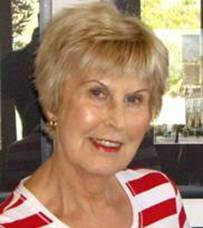 Approximately 10,000 Lithuanians arrived in Australia after World War 2 from refugee camps in Germany. Previously, a small number arrived in the 1800s and then later after World War 1. Lithuanian communities were established in the capital cities of Adelaide, Melbourne, and Sydney. These cities host the bi-annual Lithuanian Days Festival on a rotating basis. Smaller communities were established in Albury, Brisbane, Canberra, Geelong, Hobart, Newcastle, Perth, and Wollongong. The three major centres accounted for about 86% of Lithuanian settlements, with the minor centres for another 10%, with the remainder scattered about the rest of Australia. Lithuanians built their clubs as well as their own houses. In South Australia, Lithuanians built a museum as well as their own church and had Lithuanian priests appointed. Dancing groups, choirs, scouts, sports teams and theatrical troupes were formed. Saturday language schools, staffed by volunteers, flourished. Committees organized concerts to mark special Lithuanian cultural events
Approximately 10,000 Lithuanians arrived in Australia after World War 2 from refugee camps in Germany. Previously, a small number arrived in the 1800s and then later after World War 1. Lithuanian communities were established in the capital cities of Adelaide, Melbourne, and Sydney. These cities host the bi-annual Lithuanian Days Festival on a rotating basis. Smaller communities were established in Albury, Brisbane, Canberra, Geelong, Hobart, Newcastle, Perth, and Wollongong. The three major centres accounted for about 86% of Lithuanian settlements, with the minor centres for another 10%, with the remainder scattered about the rest of Australia. Lithuanians built their clubs as well as their own houses. In South Australia, Lithuanians built a museum as well as their own church and had Lithuanian priests appointed. Dancing groups, choirs, scouts, sports teams and theatrical troupes were formed. Saturday language schools, staffed by volunteers, flourished. Committees organized concerts to mark special Lithuanian cultural events
Most Lithuanian refugees who came to Australia between 1947- 1953 were single men and women or young families. The Australian government needed manpower after the war to replace the men killed in battle. Often young men migrated first and then sponsored their parents and younger siblings. They were housed in disused army barracks like those in Bonegilla near the border of Victoria and New South Wales. These corrugated iron structures were freezing in winter and hot in summer Irrespective of their professions. Lithuanians together with Latvian and Estonian
Known for their generosity, Australian Lithuanians have and continue to host and billet Lithuanian basketballers from America and Lithuania, also politicians and entertainers from Lithuania. Huge numbers of people turned out to meet and greet President Valdas Adamkus whenever he visited Australia.
Nowadays, Lithuanian communities have their own Facebook pages, for
This year a blog was started to collate material about the history of Lithuanians in Australia by Jonas Mockunas: http://earlylithuaniansinaustralia.blogspot.com.au/2015_02_01_archive.html
Jura Reilly’
Victoria, Australia.
Founder of FB group Baltica
Author of “A Wolf at Our Door”Australian Lithuanians
- Bookmark :
- Digg
- del.icio.us
- Stumbleupon
- Redit it
- Posted by - (6) Comment
Help us make VilNews
even more successful!
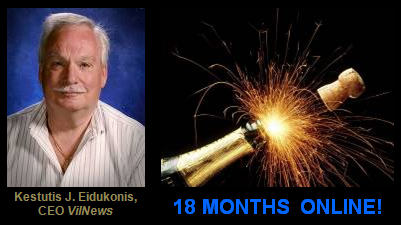
Dear VilNews
We cannot continue to carry the full financial cost of publishing and disseminating VilNews on our own. We feel that all of us have a vested interest in the success of VilNews. In order to continue and expand this great
If you can, please make a financial contribution to VilNews. At the present
If you know of any business that should or could advertise in VilNews, please contact them. We are looking for sponsors and advertisers.
Please check your e-mail contact lists and suggest www.VilNews.com to all your friends who are interested in Lithuania. You would be surprised, how many of them have not heard of us. VilNews has also two different pages on Facebook, so go in and "like" us and participate in our ongoing debates.
I am sure that all of us working together can make VilNews even more successful than it already is.
Sincerely,
Kestutis J. Eidukonis
CEO VilNews
kestutis.eidukonis@VilNews.com
- Bookmark :
- Digg
- del.icio.us
- Stumbleupon
- Redit it
EU-Russia: Facing a new reality
- Posted by - (3) Comment
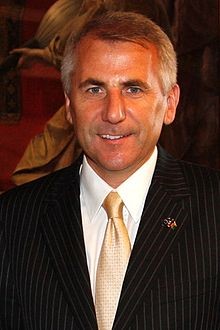
By Vygaudas Ušackas
EU Ambassador to the Russian Federation
Dear readers of VilNews,
It’s great to see this online resource for people interested in Baltic affairs. I congratulate the editors. From my position as EU Ambassador to Russia, allow me to share some observations.
For a number of years, the EU and Russia had assumed the existence of a strategic partnership, based on the convergence of values, economic integration and increasingly open markets and a modernisation agenda for society.
Our agenda was positive and ambitious. We looked at Russia as a country ready to converge with “European values”, a country likely to embrace both the basic principles of democratic government and a liberal concept of the world order. It was believed this would bring our relations to a new level, covering the whole spectrum of the EU’s strategic relationship with Russia.
In such an environment, Europe’s security architecture, which had been built and maintained for decades – and which the Baltic States are a part of – was seriously undermined by Russia’s illegal annexation of Crimea, followed by the destabilisation of Eastern Ukraine. Our relations became a hostage to the situation in Ukraine.
Rather than coming closer and nurturing the same values, a divide gradually developed between us.
Over the last two years, the quality of EU-Russia relations has been determined neither by our strong mutual interests nor by a common vision, but mainly by our divergence over Ukraine. We have been running the very real and grave risk of falling into the trap of long-term strategic rivalry and competition. We have seen an enlarged rift in our world views and, by extension, in our relationship. This is a very dangerous development. Whether talking about the Eastern Partnership, civil society, human rights, the Maidan, economic policy or sanctions, we have been seeing things differently. It seems that we have been living in a world of misperceptions and delusions.
The Baltic States have a particularly crucial part to play. Acting as a role model and remaining open for contacts and engagements with the Russian society at large, they should reinforce the immunity of our society from political corruption and media manipulation, and keep the socio-economic model strong and attractive. So it is time for solidarity, and I’m happy that we are now enjoying the benefits of the Euro-Atlantic institutions. As the EU is of prime importance in economy, so is NATO for security. NATO and the EU mutually reinforce one another.
Areas of common interest
But of course, the EU and Russia are indispensable international actors. We are interdependent on a wide range of bilateral and multilateral issues, be they trade, energy or global matters, which remind us of the need to agree on common efforts. The Iranian nuclear talks are a good example, where diplomacy in the P5+1 format managed to produce a landmark agreement.
Regarding trade, the EU remains Russia’s main trading partner and its main customer, absorbing nearly half of Russian exports. The EU is by far the largest source of Foreign Direct Investment (FDI) in Russia – about 75% of total FDI stock comes from EU Member States. Based on historical data and the complementarity of our economies, the EU and Russia will remain major economic partners for a long time to come.
The EU and Russia are also the most natural trading partners in energy. The new EU Energy Union Strategy, while advocating diversification of supply, leaves room for continuing competitive energy trade with Russia, based on the principles of open markets, fair competition and environmental protection, to the benefit of both sides.
But currently, the focus falls on Russia’s military operation in Syria, which has recently been accompanied by political outreach. While closely following the developments on the ground, the EU maintains that the only solution for the crisis is a political one.
We have a common interest in putting an end to the bloodshed that has claimed 250,000 lives, and helping the millions of displaced people, for which the Assad regime bears the greatest responsibility. We urge all those international actors with influence over Syria to push for an inclusive political transition. To achieve this, we must bring back stability, promote peace and reconciliation, and create the necessary environment for efficient counter-terrorism efforts, all towards the sovereignty, independence, unity and territorial integrity of the Syrian State.
We depend on one another to address a number of other global and regional challenges including the Middle East Peace Process, the Libyan crisis, Iraq and Afghanistan, but also deep-rooted horizontal challenges such as climate change, international terrorism and migration.
In view of this, we need to try to gradually repair our relations and establish a revised modus vivendi or at least a modus operandi recognising our differences but seeking to work on common interests.
Ukraine – building a wall is not a solution
Constructive engagement on Ukraine, based on respecting the sovereignty and territorial integrity of our common neighbour, would be a step in the right direction. The prerequisite from the EU side for the start of the normalisation process of EU-Russia relations remains unchanged – full implementation of the Minsk Agreement.
While much remains to be done, such as the organisation of local elections in Luhansk and Donetsk according to OSCE standards; the arrangement for self-government; and Ukraine’s regaining of full control of its borders, at the same time we are registering some positive developments: the ceasefire is being largely respected, the withdrawal of heavy weaponry and smaller weapons systems has been implemented and the political process was given a further impetus in the Normandy summit on 2 October 2015..
The Minsk process is moving in the right direction, albeit slowly and sometimes hesitantly. This is no small thing.
The EU will continue to support the process, including via political, financial and in-kind contributions to the OSCE special monitoring mission. We have already contributed to the agreement on the winter gas price for Ukraine, and remain fully engaged on the trilateral talks on the Deep and Comprehensive Free Trade Agreement (DCFTA) implementation, with a view to addressing Russian concerns. I should note that other Eurasian Economic Union members, who also have preferential trade relations with Ukraine, have not expressed similar concerns. Nevertheless, in the spirit of cooperation, the EU is working actively with Russia and Ukraine and is willing to discuss practical arrangements to maintain free and unrestricted trade. At the next trilateral Ministerial meeting, to be held on December 1, we will discuss the way forward and we are counting on Russia to play a constructive role in this process.
Ukraine is and will remain our common neighbour, and has the full right to choose its future trajectory itself, which must be respected by all.
Economic relations and regional cooperation
Our economic relations are far from reaching their full potential because of known facts – the illegal annexation of Crimea, destabilisation in Eastern Ukraine and related EU restrictive measures. Of course, Russia’s own ban on food imports from the EU has had a direct impact on bilateral trade as well. In the case of the Baltic States, I am well aware that local producers have felt the effects directly and have been adapting their businesses to alternative markets. But the main impact is felt by Russians, due to rising food prices and a limited choice of high-quality food products.
In the first half of 2015, EU-Russia trade declined by about 38% in dollar terms, mainly as a result of exchange rate changes, lower international commodity prices and Russia’s economic recession. These factors affect the entirety of Russia’s trade with the world: Russia’s total trade turnover has declined by around 34%.
However, we invite Russia to enjoy the benefits of the EU market, which remains highly attractive for Russia’s classic export – it is low-risk, transparent, diverse and trustworthy. Simultaneously, Russian companies investing in the EU are finding partners for new development and modernisation.
The EU is also following the Eurasian integration processes. We welcome regional economic integration initiatives if they strive towards economic openness and more liberalised trade not only among their members, but also vis-a-vis other partners, in particular neighbouring countries. That would ensure that the Eastern Partnership and the Eurasian Union can coexist without tension. The idea of a free trade agreement between the EU and the Eurasian Union seems appealing given the complementarity of our respective economies. However, it remains a longer-term target which must be premised on a common and proven commitment to economic liberalisation.
Meanwhile, the traditional trade and economic ties between the EU and Russia should be maintained, on the basis of respecting international trade rules.
Science and education cooperation, tourism
In spite of anti-Western rhetoric, so harshly promoted in Russian electronic media, we appreciate the increased interest of Russia’s education and science community to participate in EU-funded programmes. This year, an unprecedented amount of 3500 individuals – staff and students, will be involved in the so-called Erasmus+ international credit mobility scheme, financed by the EU. Russian universities were awarded 45 Jean Monnet grants (university networks connecting scholars and scientists across the world with EU-based universities), the second-highest number of applications by a non-EU country globally, the first being Ukraine. We also help Russian universities develop their curricula. There were 13 joint cooperation projects focusing on curricula development and modernisation of education bringing together 63 academic institutions from Russia. Participating Russian universities span the entire country, from Petrozavodsk to Vladivostok.
The importance of Russia as a neighbour is also reflected in our Cross-Border Cooperation programme. Out of 17 EU co-funded programmes, 8 are with the Russian Federation: 7 land-border and 1 sea-basin (in the Baltic Sea Region), totalling almost €200 million. We also expect Russia will live up to its own commitments within the programmes.
Despite the current tensions, Russia remains by far the country where most Schengen visas are issued (6.9 – almost 7 million in 2013 and 5.8 million in 2014). I always try to use the occasion to invite not only Russians to the EU, but also citizens of the EU to Russia, to explore the numerous natural wonders that Russia offers.
Conclusions
Today, Russia and the West seem to have embarked on different trajectories and are moving at different speeds. We have to be honest in recognizing our differences. The current rift is likely to shape the EU-Russia relationship for some time to come.
However, despite our current difficulties and differences, the EU and Russia share a continent, a common history, our economies are interlinked, and we are our biggest neighbours respectively. We are too important – and too interdependent – to ignore the benefits of a restored relationship and trust.
- Bookmark :
- Digg
- del.icio.us
- Stumbleupon
- Redit it
The likelihood of Putin invading Lithuania
- Posted by - (0) Comment
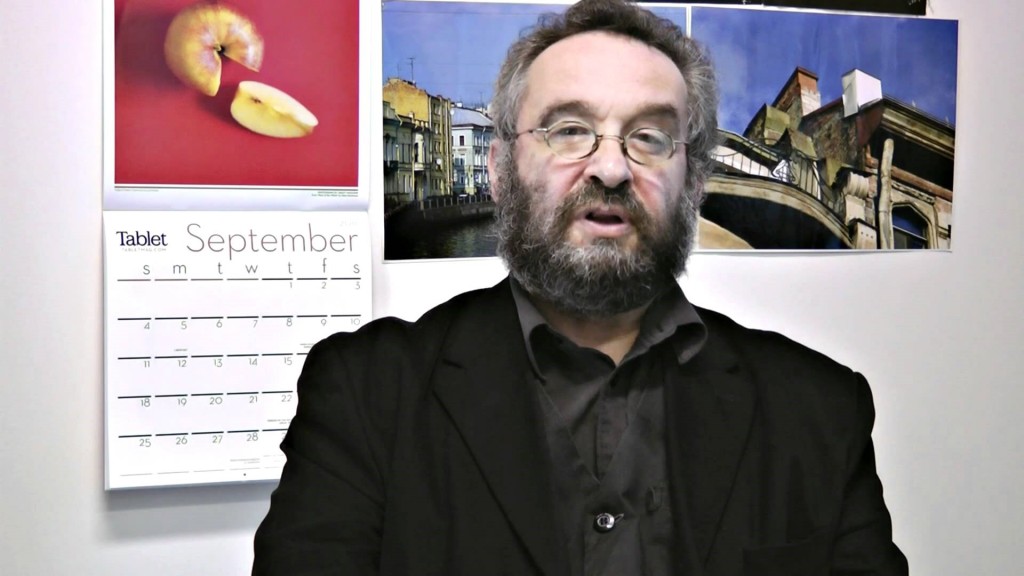
By Mikhail Iossel
Professor of English at Concordia University, Canada
Founding Director at Summer Literary Seminars
The likelihood of Putin’s invading Lithuania or fomenting a Donbass-style counterfeit pro-Russian uprising there, at this point, in my strong opinion, is no higher than that of his attacking Portugal, say, or Ecuador. Regardless of whether he might or might not, in principle, be interested in the insane idea of expanding Russia’s geographic boundaries to those of the former USSR (and I for one do not believe that has ever been his goal), he knows this would be entirely unfeasible, both in near- and long-term historical perspective, for a variety of reasons. It is not going to happen. There will be no restoration of the Soviet Union as a geopolitical entity.
In tacit recognition of that immutable fact, the word combination “the Russian world,” which Putin had brought into political existence ever so triumphantly back in the Spring of 2014, in the immediate wake of the Crimea annexation, has been taken out of circulation completely quite months ago, along with any mentions of the mythological “Novorossiya” (the eight large administrative areas of South-Central and South-Eastern Ukraine which — again, according to the glowing, fever-minded post-Crimean Putin — supposedly, as per some unverifiable historical sources, used to belong to pre-historic, pre-Russian Russia thousands of years ago).
Putin finds himself at this point in a terrible bind of his own making. The simple truth of the matter is this: Russia’s economy is in a shambles, and in a free-fall. Its decline started at least three years ago, prior to Putin’s escapades on the international arena, and subsequently was further exacerbated to a great degree by the drastic slump in oil prices and, of course, the imposition of the Western sanctions against Russia (and, in a remarkable development of breathtaking inanity, along the lines of cutting off one’s nose to spite one’s face, Russia’s reflexive imposition of “food” sanctions against… itself). Simply put, Putin just cannot afford any more large-scale military ventures abroad, if only on purely fiscal grounds. Additionally, he knows now he wouldn’t be able to get away with anything minimally extracurricular there anymore. Having failed to blackmail the West into submissive torpor by indicating his supposed willingness to use Russia’s tactical nuclear weapons in Europe — in effect, attempting to call the West’s bluff thusly: “In Russia, we don’t value our own lives as much as you do, the enfeebled westerns. Well, America and Germany and all the rest of you westerners, are you sure you’d be willing to sacrifice the lives of your young men and women in uniform for the sake of Daugavpils, say, or Narva or Klaipeda?” — he knows full-well now, even based on the immediate subsequent deployment of the US tactical and airforce detachments in the former Soviet Baltic republics, that yes, indeed, NATO most certainly will abide unwaveringly by its charter on common defence, chapter and verse, and will perceive an attack on any one of its members as an aggression against every one of them at once. Putin’s attempt at intimidating the West, thus, ended up in the form of an egg on his own face. And he knows now, too, and only too well, that the West will not hesitate to impose the further, considerably more stringent still, sanctions against his regime, in the case of any slightest display of aggressiveness on his part in Ukraine, let alone anyplace else in Europe. Russia’s economy will not be able to withstand any amount of further punishment, no matter how minute. Such previously discussed steps as, for instance, banning Russian financial institutions from using the SWIFT interbank payment system, would quite literally bring down to its knees the country’s entire financial system.
It is, then, for a combination of above-state reasons that Putin has been hamstrung in South-Eastern Ukraine, forced to freeze the active phase of the conflict here, initiate the removal of Russian troops from the former battle zone, “disown” (or in their view, betray) the local pro-Russian separatists he himself had created and trained and armed to the teeth; and hence, his, ever more insistent efforts to force Ukraine into “taking back” that, thoroughly and pointlessly devastated, war-ravaged region of defunct coal mines and pauperized, angry and confused populace.
It is important to understand that Putin has suffered a devastating, humiliating defeat in Ukraine. None of his overarching original goals for tat endeavour have been achieved. There will be no mythical “Novorossiya,” and therefore no land corridor to the annexed Crimea, which is cut off from Russia geographically and, representing a sort of metaphorical piece of luggage without a handle, already is suffering dramatic price increases and conspicuous rise in the levels of corruption. There will be no wholesale destruction of Ukraine as a form of punishment for her having rejected the corrupt, criminal, authoritarian, dead-end ways of Putin’s fascist regime in Russia. Ukraine is drifting away from Russia, moving decisively in the European direction; and despite the massive current difficulties of economic and structural nature, it will be fine in the end, it will be all right, it will survive, because the western world is on her side, and it will help to pull her through the current hardship. Russia, on the other hand, is getting progressively weaker, having enmeshed itself in a hopeless new “cold war” with the West. Putin’s vanity, his burning desire to be perceived as an equal to the western leaders (and first and foremost among them, the US President) and, impossibly enough, to have the clock of history turned back to the Yalta and Potsdam agreements era, with the world divided between the US and Russian spheres of influence — they have gotten the best of him. There is not a single conceivable scenario whereby Russia could come out the winner in this present confrontation with the West, whose economy collectively is 15 or 20 times stronger than that of Russia, and whose combined military power is vastly superior to Russia’s, as well.
What is Putin to do? His overriding goal in life, at this point, it appears, is to end up dying in his own bed. And since Putin has been proclaimed by his propagandists synonymous with Russia, in terms of his physical and spiritual existence, the above goal has also become Russia’s ultimate strategic goal, for now. He has lost in Ukraine, but he cannot admit that fact publicly. The one hundred million-strong army of Russian TV-viewers, having been subject over the past year to the most extraordinarily intense and toxic media propaganda campaign in human history, continues to be in a highly chauvinistic, belligerent, beclouded state of mind. It wants to keep being assured that Russia is kicking the West’s butt everywhere in the world. Putin, thus, needs to have his populace’s attention switched away from the failure of his Ukrainian campaign, as well as from the catastrophic state of the country’s economy (food prices rising exponentially from week to week, inflation going through the roof, people’s incomes shrinking faster that the portrait of Dorian Grey at its fastest, and millions of people falling into extreme poverty over the last year alone). Enter Syria — Russia’s last ally in the Middle East. Enter the show of Russia’s reclaiming its lost status of a global superpower: “We’re back in the Middle East! The West can no longer keep ignoring us! We’re a superpower again!” It is a virtual war, largely, one made for TV: with no Russian boots on the ground and the Russian planes bombing away at will at random targets, with no perceptible results. Now it’s Syria around the clock on Russian TV-screens — and barely a peep about Ukraine.
It is not difficult to predict the way this latest, Syrian campaign is going to turn out for Putin. Virtual wars have progressively shorter shelf lives in modern world. And then what? Then there will be something else — but already inside Russia, where the new, weaker edition of Stalin-era terror is already being introduced. Putin is desperate. What we are witnessing now is his political agony.
- Bookmark :
- Digg
- del.icio.us
- Stumbleupon
- Redit it
Are all Lithuanian energy problems now resolved?
- Posted by - (6) Comment

By Dr. Stasys Backaitis,
P.E., CSMP, SAE Fellow Member of Central and Eastern European Coalition, Washington, D.C., USA
Lithuania’s Energy Timeline – from total dependence to independence
Lithuania as a country does not have significant energy resources. Energy consuming infrastructure after WWII was small and totally supported by energy imports from Russia.
First nuclear reactor begins power generation at Ignalina in 1983, the second reactor in 1987. Ignalina generates enough electricity to cover Lithuania’s needs and about 50%.for export..As,
The Klaipėda Sea terminal begins Russia’s oil export operations in 1959 and imports in 1994.
Mazeikiu Nafta (current ORLEAN Lietuva) begins operation of
Russia supplies oil to the refinery via Druzhba pipeline since 1980. Stops delivery in 2006.
Lithuania builds
Upon joining EU in 2004, Lithuania is seeking independence from Russia energy sources. Up to 2014, Lithuania imports all gas and most oil and electricity needs from Russia.
In 2014, Lithuania completes construction of LNG terminal at Klaipeda and begins LNG import
In 2018/9, Lithuania and Poland plan to complete pipeline connection for LNG transmission.
By
In late 2016, a 1000 MW electric powerline (LITPOL-Link) will connect Lithuania with Poland.
LNG and electricity interconnections with EU assures energy independence from Russia.
LNG and electricity imports allow energy sharing with Latvia and Estonia.
Some typical relevant picture montage:
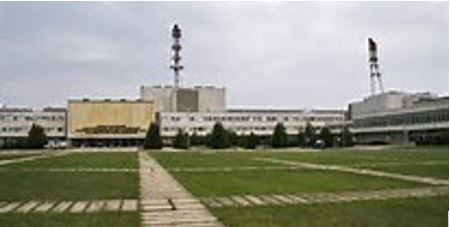
Ignalina – closed nuclear power plant in 2009
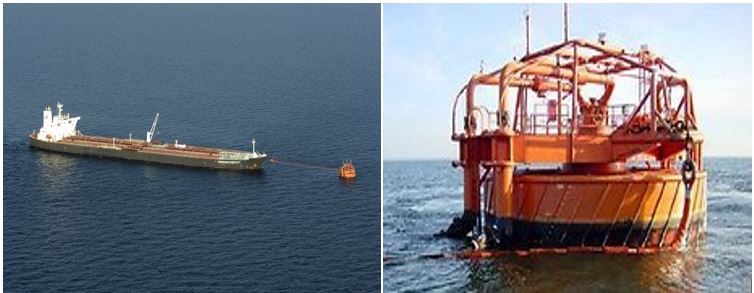
Oil transfer station in the Baltic sea at Butinge Oil transfer receptacle
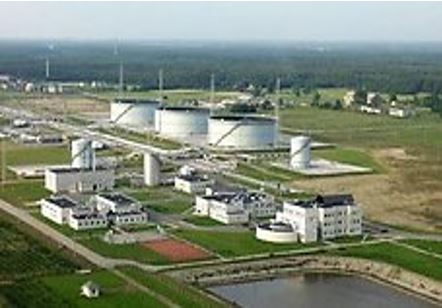
Oil Storage station at Butinge
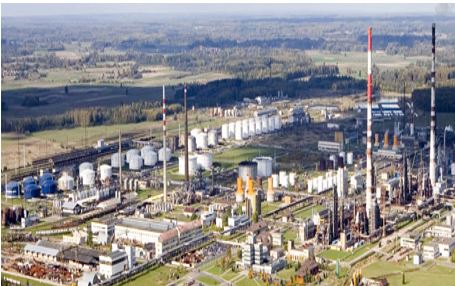
Oil Refinery – Mazeikiu Nafta (Orlean Lietuva)
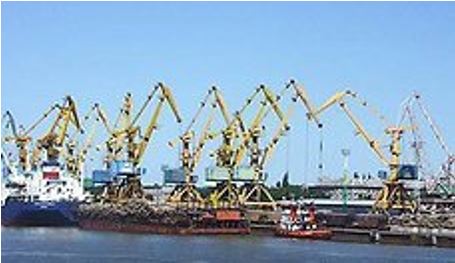
Klaipeda – ship to shore oil transfer terminal
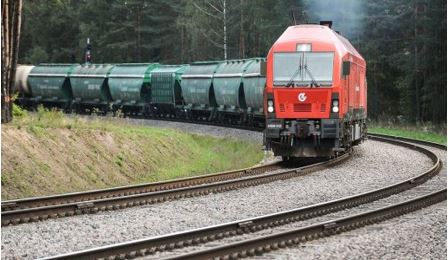
Oil transport from Klaipeda Nafta to Belarus
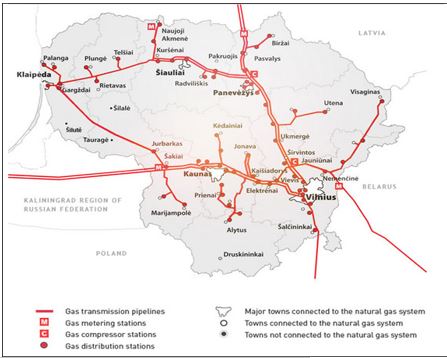
Current gas pipeline network in Lithuania
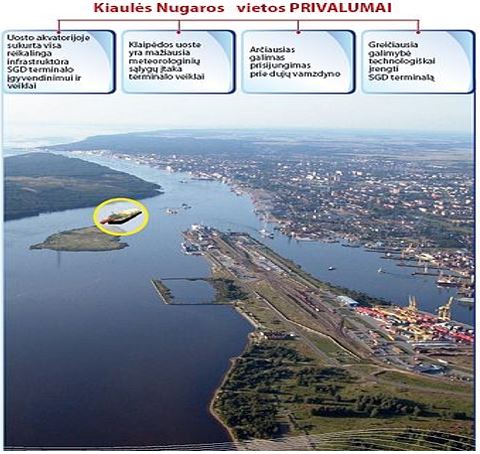
LNG island terminal (yellow circle) just east of inlet to port of Klaipeda
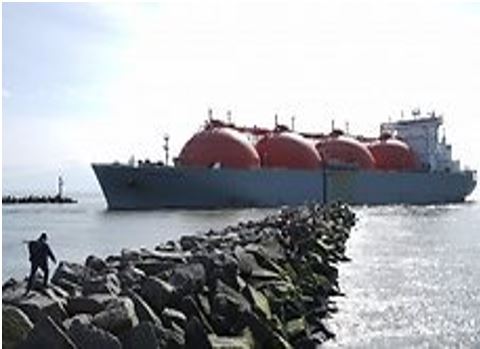
LNG carrying tanker entering the port of Klaipeda inlet
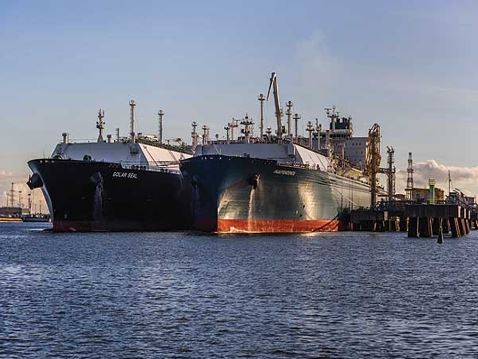
LNG is transferred from tanker to a stationary floating terminal
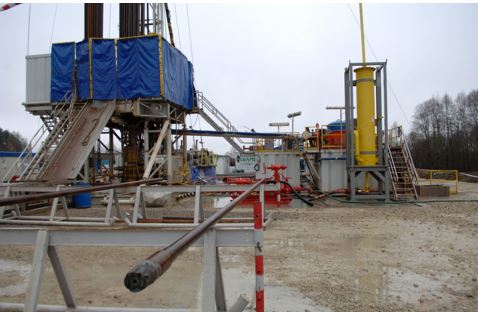
Preparing a 500 mln cu.m. underground LNG
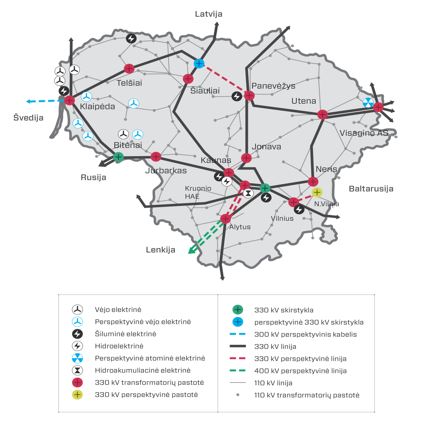
Locations of Lithuania’s electricity producers and the distribution grid
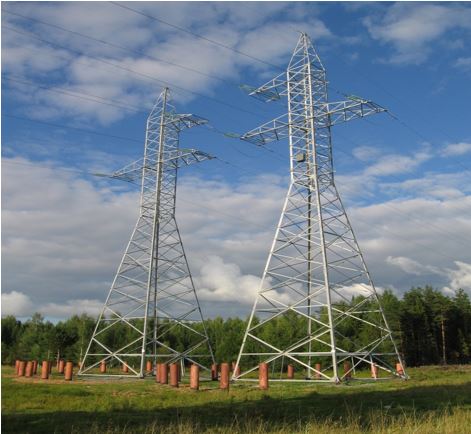
High voltage transmission line towers
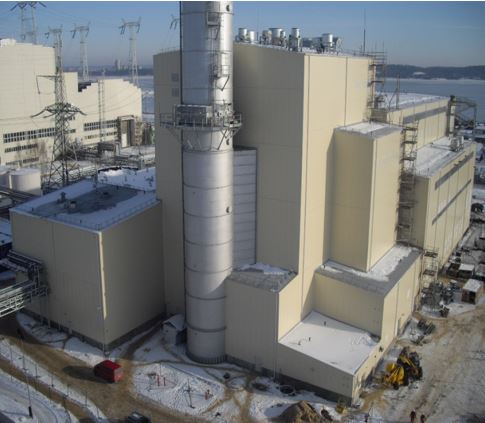
Elektrenai, Lithuania’s main electrical power plant, Four gas and/or oil powered blocks 300 MW/ea., one 455 MW combined cycle block
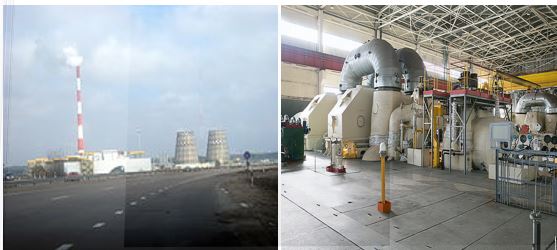
Vilnius Energy – combined heat (603 MW) and electric (360MW) power plant
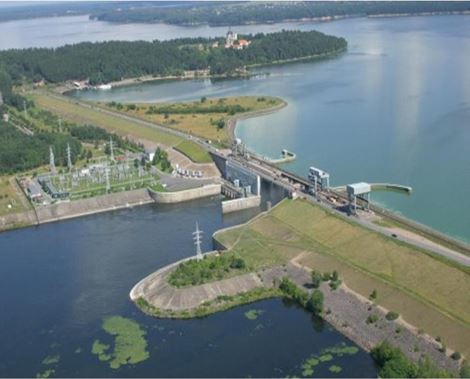
Kaunas hydroelectric 110MW power plant
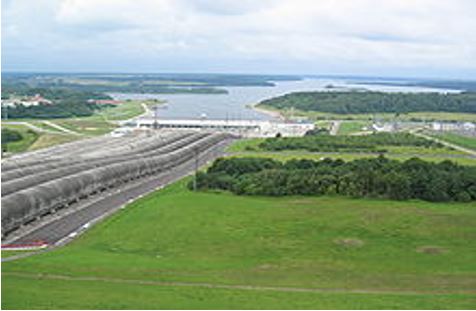
Kruonis Pumped Storage Hydroelectric 900MW powerplant
Lithuania’s current wind power generation in 17 parks - 282 MW
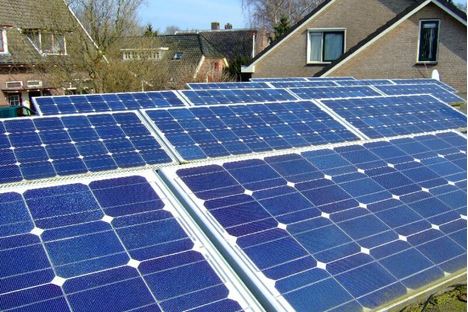
Solar Energy Generating Systems delivered in 2013 61 MW of electric power
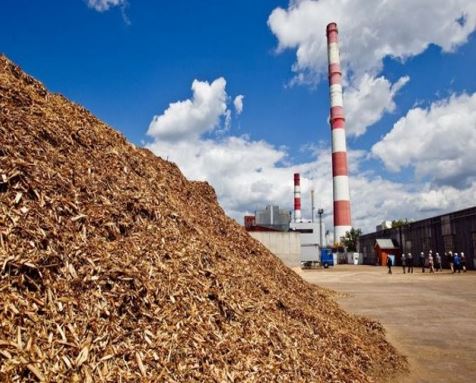
Heat and electricity generation with biofuels and biomass produced nearly 23% of Lithuania’s consumed energy. It is still rapidly expanding
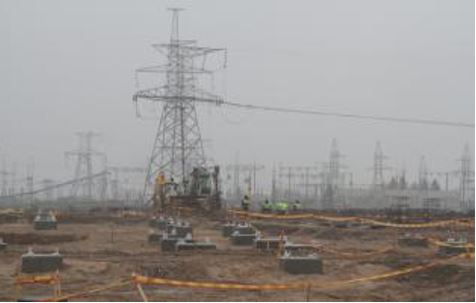
Electrical „LitPol Link” in rapid construction in Lithuania and Poland
- Bookmark :
- Digg
- del.icio.us
- Stumbleupon
- Redit it
Have Lithuanian ties across the Baltic Sea become stronger in recent years?
- Posted by - (0) Comment
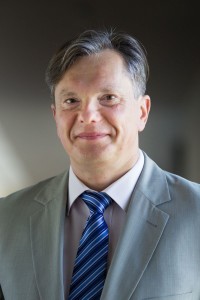
By Eitvydas Bajarūnas
Lithuanian Ambassador to Sweden
My answer to affirmative “yes”. Yes, Lithuanian ties across the Baltic Sea become as never before solid in recent years. For me the biggest achievement of Lithuania in the Baltic Sea region during recent years is boosting Baltic and Nordic ties. And not because of mere accident – Nordic direction was Lithuania’s strategic choice.
The two decades that have passed since regaining Lithuania‘s independence can be described as a “building boom”. From the wreckage of a captive Soviet republic, a generation of Lithuanians have built a modern European state, and are now helping construct a Nordic-Baltic community replete with institutions intended to promote political coordination and foster a trans-Baltic regional identity. Indeed, a “Nordic-Baltic community” – I will explain later in my text the meaning of this catch-phrase.
Since the restoration of Lithuania’s independence 25 years ago, we have continuously felt a strong support from Nordic countries. Nordics in particular were among the countries supporting Lithuania’s and Baltic States’ striving towards independence. Take example of Iceland, country which recognized Lithuania in February of 1991, well in advance of other countries. Yet another example – Swedish Ambassador was the first ambassador accredited to Lithuania in 1991. The other countries followed suit. When we restored our statehood, Nordic Countries became champions in promoting Baltic integration into Euro-Atlantic institutions. To large degree thanks Nordic Countries, massive transformations occurred in Lithuania since then, Lithuania became fully-fledged member of the EU and NATO, and we joined the Eurozone on 1 January 2015.
Lithuania took advantage of it very successfully because we soon realized that the assistance and support of the Nordic Countries could help us to play more a significant role in the European and transatlantic space as well as help us solve problems that were urgent for us and the entire region. Nordics, especially – Sweden, became the largest investors in Lithuania, not to mention their financial support for our states’ civil societies, democracy and other important processes which were particularly important to us as developing states that had restored their independence and statehood. And this is quite natural: Nordic and Baltic are united by common values, interests and clear goals. We cherish our freedom but we also care a great deal about everyone’s right to be free.
Several public opinion polls pointed out that Lithuanians believe Lithuania should be associated with the region of Northern Europe, and not with Eastern Europe. Northern orientation dominated in the cases of Estonia and Latvia as well. Orientation towards the North was even proposed by a foreign company that consulted the Government of Lithuania some years ago on image creation issues: in terms of economy Lithuania had rather be associated with the stable, advanced, socially responsible Nordic Countries than the post-soviet space.
- Bookmark :
- Digg
- del.icio.us
- Stumbleupon
- Redit it
- Posted by - (7) Comment
VilNews is back!
Our publication VilNews has been inactive over the past two years. But here we are again, ready with a fresh new issue. We wish old and new readers worldwide warmly welcome!
VilNews is no normal media, more a communication platform where our readers are invited to give feedback and also write comment articles. I hope you all will enjoy reading/seeing the material we will be publishing!
“New” VilNews consists of 18 sections that you can immerse yourself into by clicking on the link buttons at the top of each page.
If “old” VilNews had been printed on paper, it would become a book of more than 7,000 pages of totally unique reading material about historical and contemporary Lithuania. This huge material is still available. All old and new articles are sorted by topics, in our 18 sections.
I wish you some good reading, and please do not hesitate to contact us!
Aage Myhre
Editor-in-Chief
aage.myhre@VilNews.com
- Bookmark :
- Digg
- del.icio.us
- Stumbleupon
- Redit it
VilNews e-magazine is published in Vilnius, Lithuania. Editor-in-Chief: Mr. Aage Myhre. Inquires to the editors: editor@VilNews.com.
Code of Ethics: See Section 2 – about VilNews. VilNews is not responsible for content on external links/web pages.
HOW TO ADVERTISE IN VILNEWS.
All content is copyrighted © 2011. UAB ‘VilNews’.

 Click on the buttons to open and read each of VilNews' 18 sub-sections
Click on the buttons to open and read each of VilNews' 18 sub-sections 



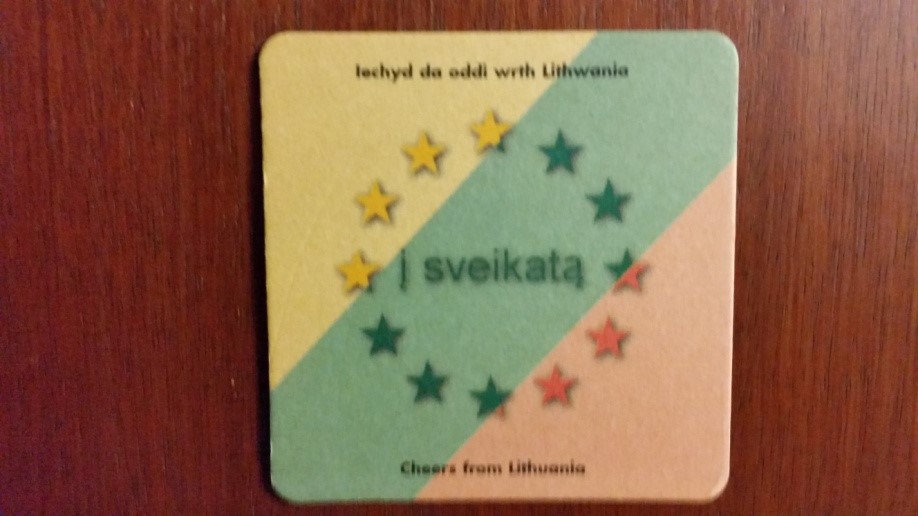












.jpg)



